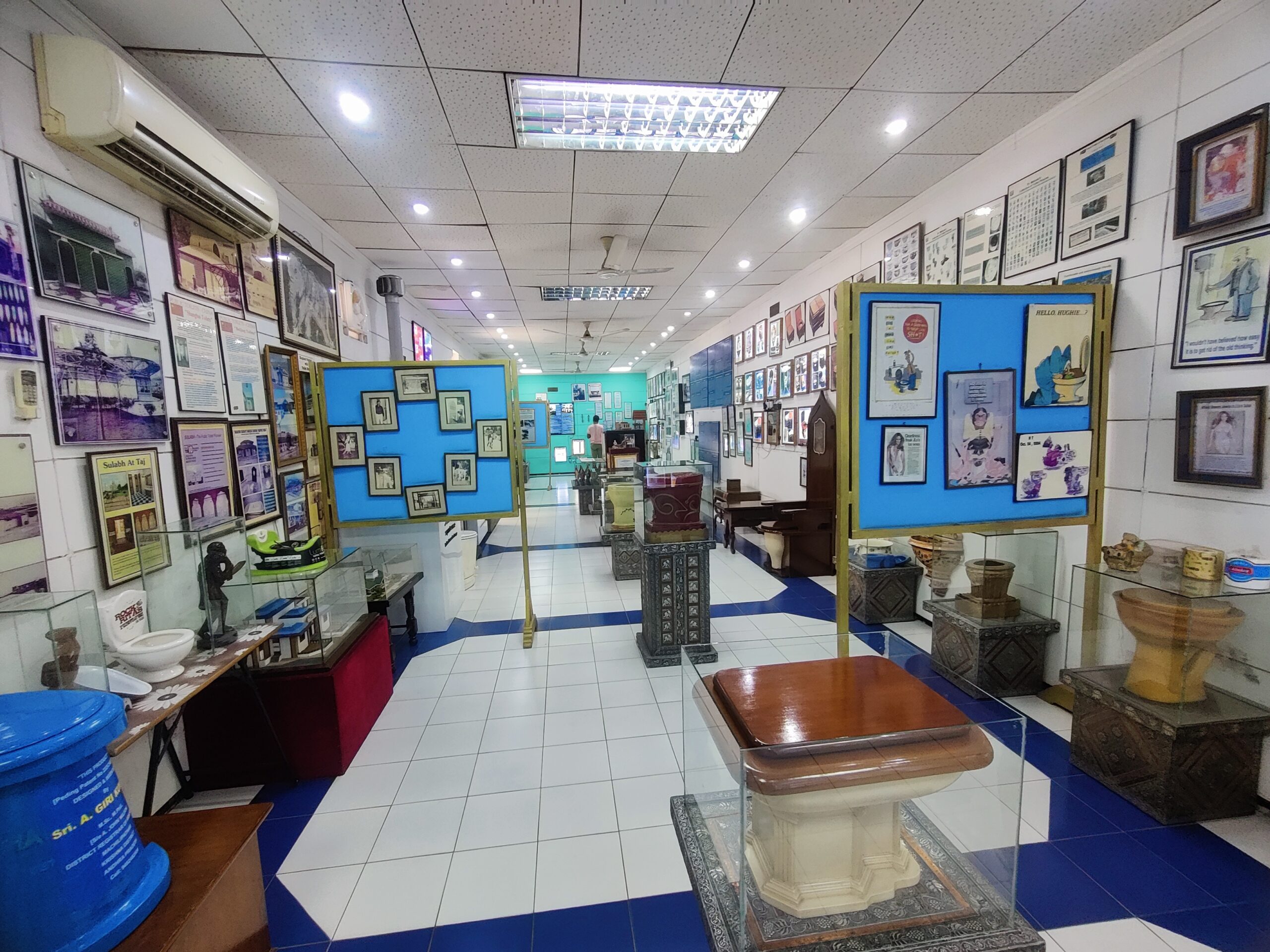
EXPLORING THE ECCENTRIC: A Glimpse into the Toilet Museum’s Unique Collection
Nestled in the heart of New Delhi lies a museum unlike any other, where the history of sanitation comes alive in a captivating narrative. The Sulabh International Museum of Toilets, founded by Bindeshwar Pathak in 1992, is a unique institution that sheds light on the remarkable evolution of sanitation practices across the globe, spanning over 5,000 years of history. With focus on technology, culture, and societal shifts, the museum takes visitors on an awe-inspiring journey through time, all the way from ancient civilisations to modern era.
A Step into History
As visitors enter the museum, they are immediately transported through time. Divided into three distinct sections – Ancient, Medieval, and Modern – the museum offers a comprehensive view of how sanitation has evolved over the centuries.
In the ‘Ancient’ section, the spotlight is on the ingenious sanitation arrangements of Harappan settlements. From wells to underground drains, visitors get a glimpse of the sophistication in the sanitation of ancient civilisations. Notably, the pioneering WC (Water Closet) toilet at Mohenjo-Daro is showcased here, underlining the innovation of the past.
Moving forward, the ‘Medieval’ section unveils the lavatories of grand forts and palaces, providing a glimpse into the lifestyles of the kings and emperors of bygone eras. From Amber Fort to Akbar’s Fort, ornate urinals and commodes evoke the regal sensibilities of medieval times.
The ‘Modern’ section captures the global journey of sanitation’s evolution. Toilet-related cartoons, photographs from renowned sanitary-ware manufacturers, and a diverse collection of public toilets from around the world present the marvels of modern technology. The section is a testament to how far we’ve come, from mobile toilets to state-of-the-art electronic conveniences.
Education, Awareness, and Inspiration
Narjis Ali, the Protocol Officer at the museum, emphasises the educational role this institution plays. It serves as a platform to educate students, inspire manufacturers to innovate, and provide insights for policymakers, she says. The museum also bridges the gap between history and present challenges in the field of sanitation.
One of the museum’s most intriguing exhibits is a replica of the wooden throne once used by French monarch King Louis XIV. This exhibit is aimed at breaking taboos surrounding toilets and sparking open discussions about sanitation – a crucial dialogue in a nation where this topic remains sensitive.
Beyond artifacts, the museum’s collection unravels historical anecdotes. For instance, it reveals how a lack of proper sanitation contributed to significant historical events, such as the defeat of the Persians against the Greeks and the assassination of Roman Emperor Heliogabalus in a toilet.
Managed by the Sulabh International Social Service Organisation, the museum stands as a tribute to Pathak’s tireless efforts. Through the exhibits, the museum redefines perceptions of toilets, paving the way for a future where sanitation is free from societal taboos.
Delve into the museum’s corridors, and you’ll discover more than just artifacts. The collection sheds light on historical anecdotes. The timeline showcases the parallel development of sanitation and civilisation, from rudimentary chamber pots to modern sewer systems.
As the museum continues to draw visitors from across the globe, it propels conversations on the crucial importance of proper sanitation.
The museum is open every day of the week, from 8 am to 8 pm. On Sundays and national holidays, the timings are adjusted to 10 am to 5 pm. Visitors can explore the museum free of charge, meaning that this insightful journey is accessible to all.
The Sulabh International Museum of Toilets is an immersive experience that educates, enlightens, and encourages discussions about a subject often overlooked. As visitors leave this one-of-a-kind museum, they carry with them not only historical knowledge but also a renewed appreciation for the significance of proper sanitation in our lives.
Delhi hosted what organisers describe as the world’s first player auction in golf, launching ‘72…
An elderly woman recalls how her six-year-old granddaughter lay bleeding after a speeding car hit…
Municipal Corporation of Delhi plans a unified policy enabling RWAs to adopt and maintain parks…
A 17-year-old boy allegedly died by suicide after jumping before a moving train at Uttam…
Delhi High Court grants bail to 26-year-old Thar driver accused of mowing down two in…
Two Rohini men arrested for fatally stabbing one person and injuring another during a robbery…